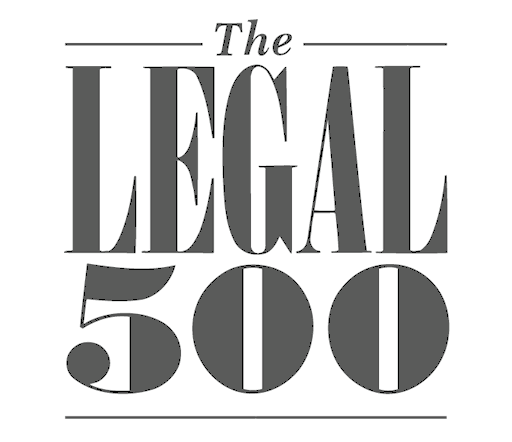Publications
Arbitrators' independence after deliberations no longer required?
Axel Buhr;
in: dRSK, 22.06.2022
Commentary on Swiss Federal Tribunal decision 4A_462/2021 on February 7, 2022
The Swiss Federal Tribunal had an opportunity to clarify the rules for the disclosure of conflicts of interest that arise at the end of arbitration proceedings: Must an arbitrator still disclose a conflict that arises only after the final deliberations have already been made? May the conflicted arbitrator still participate in the release of the final award, despite the conflict? Unfortunately, the answer of the Swiss Federal Tribunal is not crystal-clear.
I. Background
[1] In October 2017, Turkish company A initiated arbitration proceedings against Turkish company B and its Singapore-based sister company at the Swiss Chambers’ Arbitration Institution (which is known today as the Swiss Arbitration Centre; sec. A.a and B.a).
[2] The two respondents were part of a U.S.-American group of companies that produces dyes and chemicals for the textile industry among other things. Company A was trading with chemicals and had been company B’s agent in Turkey for a long time (sec. A.a and A.b).
[3] In 2015, companies A and B had entered into a joint venture agreement with the intention to formulate, market and sell certain textile dyes through a joint venture company (sec. A.b).
[4] Apparently, the joint venture did not thrive as expected. In 2017, company A terminated the joint venture agreement for breach and requested damages from company B in the initial amount of USD 21 million (sec. A.d and B.a).
[5] In line with the arbitration agreement, the arbitration had its seat in Basel (Switzerland) and was governed by the 2012 edition of the Swiss Rules (sec. A.c).
[6] The arbitral tribunal was composed of three members. All members of the arbitral tribunal had been appointed by the SCAI Court (known today as the Arbitration Court) without any objections (sec. B.b).
[7] In June 2019, the arbitral tribunal confirmed its jurisdiction over company B and declined the same over company B’s Singapore-based sister company. The partial award was not challenged by any party (sec. B.c) and the arbitration proceeded accordingly (sec. B.d‑i):
- In September 2019, company B filed its statement of defence. Company B requested the arbitral tribunal to dismiss company A’s case entirely and to award company B damages in the initial amount of USD 960’000.
- An evidentiary hearing was held in October 2020.
- On 19 January 2021, the arbitral tribunal confirmed receipt of the parties’ cost statements and notified the parties that the proceedings would be closed in due course.
- On 13 April 2021, company A enquired with the arbitral tribunal about the estimated time of arrival of the final award and was informed that the proceedings should be completed by the end of the summer.
- On 22 June 2021, the arbitral tribunal closed the proceedings in accordance with Article 29 of the 2012 Swiss Rules.
- On 15 July 2021, the arbitral tribunal issued its final award. With one arbitrator dissenting, the majority dismissed all claims of the parties entirely and ordered company A to compensate company B for arbitration costs in the amount of USD 1.1 million.
[8] In September 2021, company A requested the Swiss Federal Tribunal to set aside most of the arbitral tribunal’s final award. Among other things, company A’s appeal was based on Article 190(2)(a) of the Swiss Private International Law Act. In this respect, company A argued that the arbitral tribunal was not properly constituted when the final award was rendered. More specifically, it was Respondent’s case that the presiding arbitrator of the arbitral tribunal had lacked the required independence and impartiality to render the final award (sec. C and 3).
[9] Company A’s complaint was based on the grounds that the presiding arbitrator had partnered with company G, a law firm that ranked the company B’s group as a «key client» of their litigation and arbitration department (sec. 4 and sec. 4.1). Indeed, the presiding arbitrator had publicly communicated on 1 September 2021 that she had joined company G on the same day (sec. 4.1).
[10] Company A asserted that the new partnership had been set in stone already before 15 July 2021, when the final award was rendered (sec. 4.1). According to company A, this fact was evident as:
- The presiding arbitrator had disclosed her move in a different and unrelated arbitration case, which apparently was in its early stages, on 18 June 2021.
- The presiding arbitrator had confirmed in a case management conference held on 28 June 2021 that no conflicts would arise from the change in the said unrelated arbitration case.
[11] In November 2021, the three arbitrators jointly commented on the appeal (sec. C and 4.3.1). Among other things, the arbitrators informed the Swiss Federal Tribunal that the arbitral tribunal had deliberated on 28 January 2021 and that it «came to a final conclusion» on 5 February 2021.
[12] In a personal statement, the presiding arbitrator further informed the Swiss Federal Tribunal that the first meeting with company G had not taken place before 26 February 2021 and that a contract had not been entered into before 28 April 2021 (sec. C and 4.3.1).
II. Decision
[13] With its decision dated 7 February 2022, the Swiss Federal Tribunal entirely dismissed company A’s appeal (sec. 8).
[14] As far as the alleged lack of independence and impartiality of the presiding arbitrator is concerned, the Swiss Federal Tribunal’s analysis routinely starts with the confirmation that the fundamental guarantee in Article 30 of the Swiss Federal Constitution and Article 6(1) ECHR requires that a dispute is decided by independent and impartial judges, no matter whether a case is heard by an arbitral tribunal or a state court (sec. 3.1.2).
[15] The Swiss Federal Tribunal’s decision is also clear about the fact that a situation like in the case at hand (with one of the parties to the arbitration being a client of the arbitrator’s law firm) indeed gives rise to justifiable doubts as to the arbitrator’s independence and impartiality as a matter of principle. This is true even if the arbitration concerns unrelated matters and the arbitrator is not involved in the relevant client relationship at all (sec. 4.2):
«3.1.2 According to established case law, a lawyer acting as a judge is deemed to be biased if there is an ongoing mandate with a party or if he has acted as a lawyer for a party on several occasions in the sense that there is a kind of permanent relationship between them. This applies regardless of whether the mandate has a factual connection with the subject matter of the dispute to be decided or not (BGE 147 III 89, sec. 4.2.2 with references; judgment 4A_404/2021 of January 24, 2022, sec. 5.2.2.2).
According to case law, an appearance of bias also results from the fact that not the part-time judge (or arbitrator) himself, but another lawyer of his law firm maintains a mandate with a party or has maintained it several times shortly before or in the sense of a permanent relationship.»
[16] Yet, the Swiss Federal Tribunal still found that company A was not able to show that the presiding arbitrator had lacked the required independence and impartiality (sec. 4.3: «Die Beschwerdeführerin vermag mit ihren Vorbringen nicht aufzuzeigen, dass es der Vorsitzenden an der erforderlichen Unabhängigkeit und Unparteilichkeit gefehlt hätte.»).
[17] Relying on the information received from the arbitral tribunal and the presiding arbitrator, the Swiss Federal Tribunal considered it decisive that at the time when the first meeting between the presiding arbitrator and company G took place, the decision of the arbitral tribunal had already been made. For the Swiss Federal Tribunal, it was not clear at that time whether a conflict would arise at all. The Swiss Federal Tribunal concluded that the fact that company B was a key client of the new law firm of the presiding arbitrator could not possibly have compromised the decision-making of the arbitral tribunal (sec. 4.3.1).
[18] According to the Swiss Federal Tribunal, as far as conflicts are concerned that arise at the end of the arbitration proceedings, it is only relevant whether or not there is a risk that the conflict may have compromised the award (sec. 4.3.2: «[…] allein massgebend, ob ein Einfluss auf den Entscheid noch möglich ist»).
[19] The Swiss Federal Tribunal came to the conclusion that such an effect could be excluded in the present case (sec. 4.3.1 and 4.3.2). As a result, the Swiss Federal Tribunal did not consider company A’s argument decisive that the Swiss lex arbitri requires arbitrators to remain independent and impartial throughout the entire arbitration proceedings (sec. 4.3.2). It did not follow company A’s argument that Article 9(1) of the applicable 2012 Swiss Rules, same as Article 12(1) of the 2021 Swiss Rules, expressly stipulates that «[a]ny arbitrator conducting an arbitration under these Rules shall be and shall remain at all times impartial and independent of the parties». Nor was it deemed relevant by the Swiss Federal Tribunal that an arbitrator’s duty under the Swiss lex arbitri to disclose potential conflicts persists throughout the entire proceedings, as Article 179(6) of the Swiss Private International Law Act of the revised Swiss Private International Law Act now expressly makes clear:
«A person who is asked to become a member of the arbitral tribunal shall without delay disclose the existence of circumstances that could give rise to legitimate doubt as to his or her independence or impartiality. This obligation applies throughout the entire proceedings.»
(Informal translation of the Swiss Government of Article 179(6) of the Swiss Private International Law Act, as in force since 1 January 2021)
[20] As far as the presiding arbitrator’s duty to disclose the conflict is concerned, the Swiss Federal Tribunal found that she had not breached her obligation under Article 179(6) of the Swiss Private International Law Act and Article 9(2) of the 2012 Swiss Rules (today: Article 12(3) of the 2021 Swiss Rules) either (sec. 4.3.3). According to the Swiss Federal Tribunal, the presiding arbitrator was right to assume that there was nothing to disclose, as the «final conclusion» by the arbitral tribunal had already been made (sec. 4.3.3: «Vorliegend durfte die Vorsitzende, wie oben dargelegt, davon ausgehen, dass sie den erst nach der ‹final conclusion› vom 5. Februar 2021 vereinbarten Kanzleiwechsel nicht mitteilen musste.»).
III. Comments
[21] On its face, the main take-away from the Swiss Federal Tribunal’s decision appears to be that an arbitral tribunal does not necessarily need to be independent or impartial any longer, once the deliberations are completed.
[22] However, such a conclusion should be taken with a grain of salt: In fact, the decision of the Swiss Federal Tribunal raises more questions than it answers and leads to potential uncertainties instead of clarifying the legal situation:
[23] First, the Swiss Federal Tribunal does not sufficiently distinguish between two separate issues:
- Whether or not circumstances existed that gave justifiable doubts as to the independence and impartiality of the presiding arbitrator is one issue.
- A different issue is whether or not the final award had to be set aside as requested by company A in the event that the Swiss Federal Tribunal found that this was the case.
[24] Unfortunately, the reasoning of the Swiss Federal Tribunal mingles both issues. As a consequence, the court even came to the surprising conclusion that company A was not able to show that the presiding arbitrator lacked the required independence and impartiality.
[25] Based on the facts described in the decision, this conclusion is difficult to justify in the author’s view. Let’s be clear: The fact that the presiding arbitrator joined a law firm that ranked a party to the arbitration as a «key client» is a circumstance that gives rise to justifiable doubts about the presiding arbitrator’s independence and impartiality. Based on the strict standards which are – for good reason – usually required by the Swiss Federal Tribunal and which the Swiss Federal Tribunal even emphasized in the same decision, any argument to the contrary cannot convincingly be made.
[26] The lack of a clear distinction between the two issues is lamentable, as it may send a wrong signal to parties, counsel and arbitrators that are not familiar with Switzerland’s high standards of independence and impartiality.
[27] Second, the reasoning of the Swiss Federal Tribunal is unclear about the relevant time until which an arbitrator has to maintain his or her independence and impartiality.
[28] This is a pity in particular because the issue of the duration is not expressly dealt with by the Swiss lex arbitri: In contrast to Articles 9(1) of the 2012 Swiss Rules and Article 12(1) of the 2021 Swiss Rules, the 12th chapter of the Swiss Private International Law Act does not even stipulate an express duty of the arbitrator to be and remain independent and impartial (same as the 2006 UNCITRAL Model Law on International Commercial Arbitration).
[29] The lack of an express rule may be explained with the notion that the arbitrator’s duty to be and remain independent and impartial goes without saying: Arguably, this is why the 12th chapter addresses this duty only indirectly in Article 179(6) of the Swiss Private International Law Act (by providing for a duty to disclose potential conflicts) as well as in Article 180(1)© of the Swiss Private International Law Act (by providing parties with a right to challenge an arbitrator if circumstances exist that give rise to legitimate doubt as to his or her independence or impartiality).
[30] Previously, it appeared to be common ground also that the duty of an arbitrator to remain independent and impartial persists until the end of the proceedings. This understanding is expressly enshrined as the First General Principle 1 of the 2014 IBA Guidelines on Conflict of Interest in International Arbitration, same as in 9(1) of the 2012 Swiss Rules and Article 12(1) of the 2021 Swiss Rules. It is in line with this common understanding that Article 179(6) of the revised Swiss Private International Law Act expressly specifies the duty of the arbitrator to disclose potential conflicts «throughout the entire proceedings» as well.
[31] Thus, it should not be concluded from the Swiss Federal Tribunal’s decision that the duty to remain independent and impartial expires before the final award has been released. It may even resurge in the event that a final award is set aside by the Swiss Federal Tribunal.
[32] Third, the Swiss Federal Tribunal’s consideration that the conflict did not have to be disclosed by the presiding arbitrator even though the conflict arose before the final award was issued is at odds with Article 179(6) of the Swiss Private International Law Act that expressly provides that the arbitrator’s duty «applies throughout the entire proceedings».
[33] In addition, the Swiss Federal Tribunal’s decision is at odds with the considerable efforts of arbitration institutions and associations to address concerns against international arbitration as a clandestine dispute resolution mechanism and to improve transparency.
[34] Moreover, the consideration of the Swiss Federal Tribunal that the duty ends for three-member arbitral tribunals once the deliberations are completed is impractical. The deliberations may not only be less «final» than the arbitral tribunal anticipates: To just name two examples, the scrutiny of arbitral institutions and nova filed by a party may cause the need for further deliberations.
[35] The date of «final conclusion» is also an internal date that is not communicated to the parties in most cases. However, the duration of the arbitrator’s duty to disclose potential conflicts can hardly end already at a date which is not even known to the parties.
[36] Fourth, the unfettered reliance of the Swiss Federal Tribunal on additional facts that the arbitral tribunal and the presiding arbitrator provided with their comments may be justifiable with regard to the comments by the arbitral tribunal, as the factual information provided therein was confirmed by arbitrators that were not challenged by any party.
[37] However, as far as the factual information provided by the presiding arbitrator is concerned, the reliance appears problematic: As the factual information related to the coming about of the relationship with her new law firm, it necessarily could not be confirmed by an unchallenged member of the arbitral tribunal.
[38] In the author’s view, there is no basis for the Swiss Federal Tribunal to simply assume that the factual information provided by a challenged arbitrator must necessarily be correct. Evidently, this must hold true in particular in cases that concern final awards rendered by a sole arbitrator, where the timeline of the decision- making process cannot be confirmed by the unchallenged members of the arbitral tribunal.
[39] It would be helpful and welcome if the Swiss Federal Tribunal clarified these issues at the earliest opportunity.





